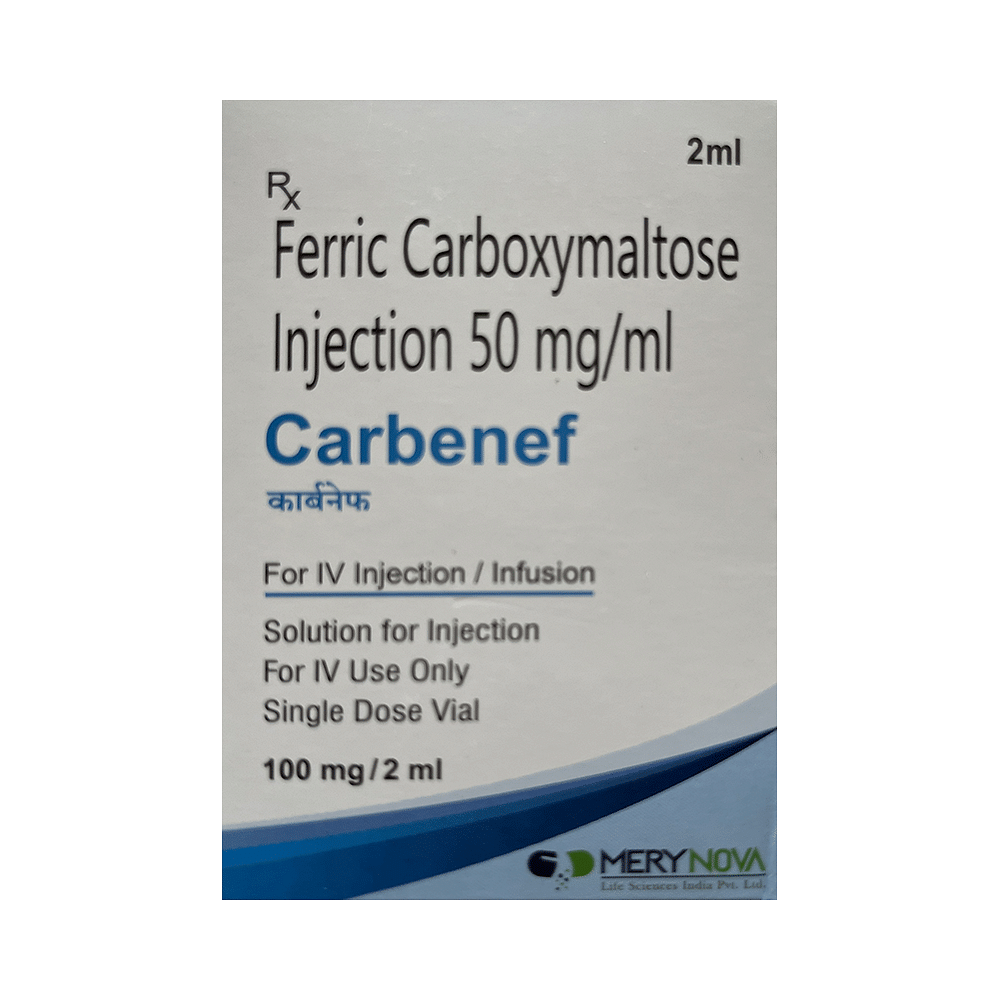
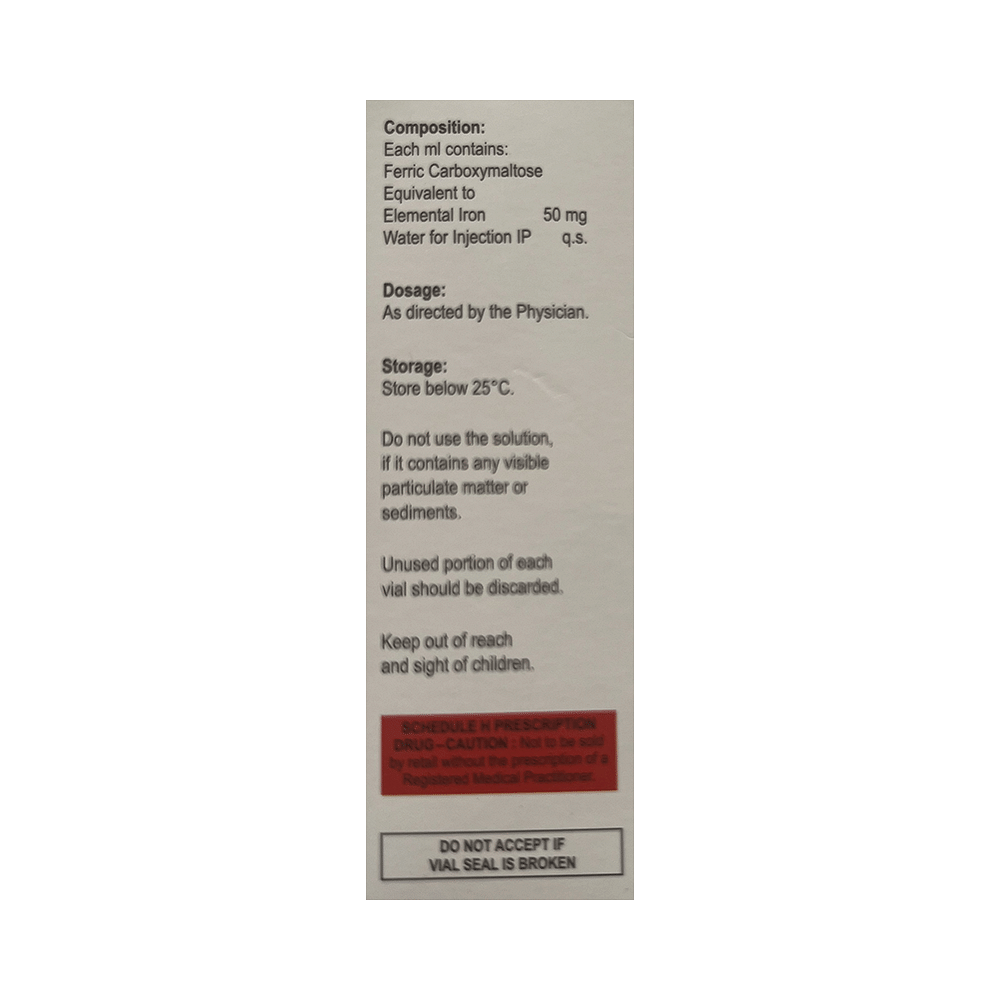
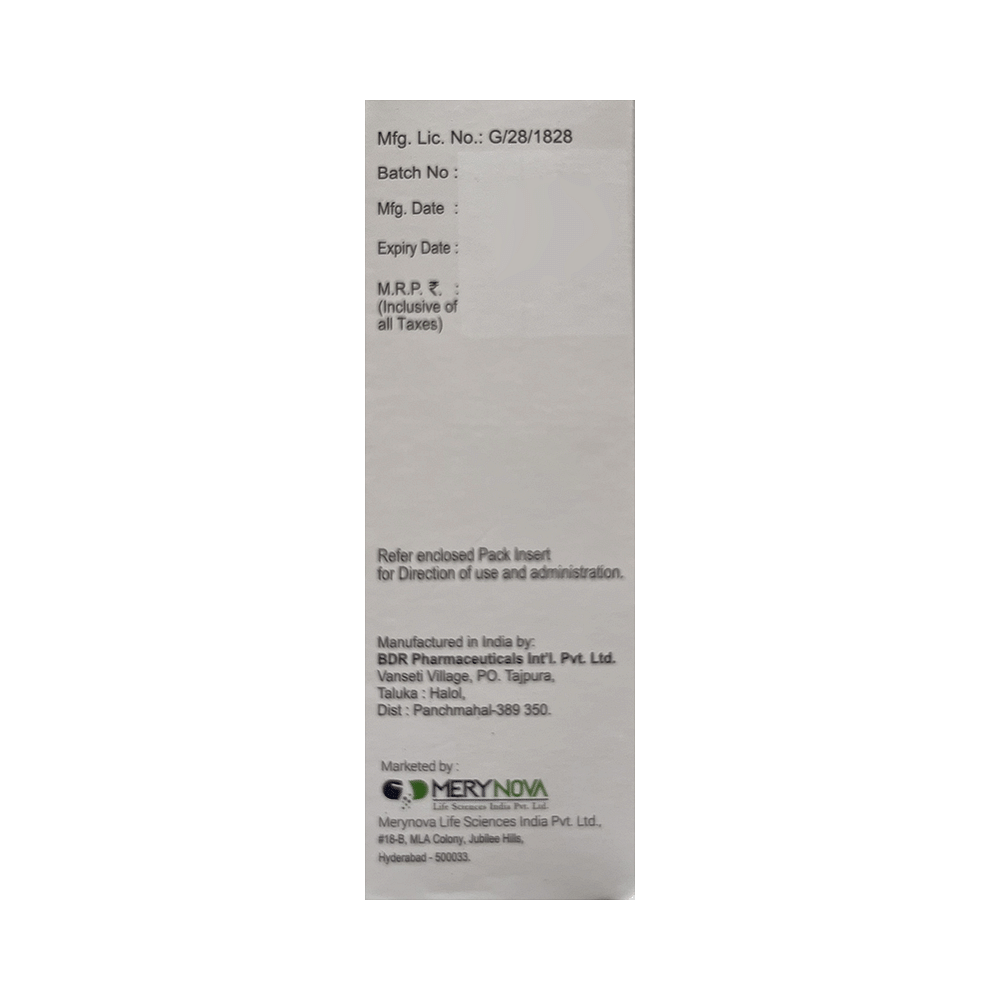
Carbenef Injection
Manufacturer
Merynova Lifesciences India Private Limited
Salt Composition
Ferric Carboxymaltose (50mg/ml)
Key Information
Short Description
Carbenef Injection is an iron replacement medicine used to treat iron-deficiency anemia, a type of anemia where you have fewer red blood cells due to insufficient iron in your body.
Dosage Form
Injection
Introduction
Carbenef Injection is given by injection or infusion into a vein by your doctor or nurse. It is usually given in two doses seven days apart. Your doctor will decide how much and how often you may need injections to improve your anemia. Eating a well-balanced diet that has enough iron, vitamins, and minerals can help to replenish your iron reserves. Good sources of iron include meat, eggs, raisins, broccoli, and lentils.
Directions for Use
Your doctor or nurse will give you this medicine. Kindly do not self-administer.
Safety Information
Side Effects
Vomiting Headache Dizziness High blood pressure Pain or irritation at the site of injection
Alcohol Warning
It is not known whether it is safe to consume alcohol with Carbenef Injection. Please consult your doctor.
Breastfeeding Warning
Carbenef Injection is safe to use during breastfeeding. Human studies suggest that the drug does not pass into the breastmilk in a significant amount and is not harmful to the baby.
Pregnancy Warning
Carbenef Injection may be unsafe to use during pregnancy. Although there are limited studies in humans, animal studies have shown harmful effects on the developing baby. Your doctor will weigh the benefits and any potential risks before prescribing it to you. Please consult your doctor.
How it works
Carbenef Injection is an anti-anemic medication.It replenishes the iron stores in your body.Iron is vital for the formation of new red blood cells and hemoglobin
Quick Tips
Carbenef Injection is used for the treatment of iron deficiency When oral iron preparations are ineffective or cannot be used Your doctor or nurse will administer it by injection Your blood pressure and blood iron levels will be regularly monitored during treatment with this medication
Related Medicines
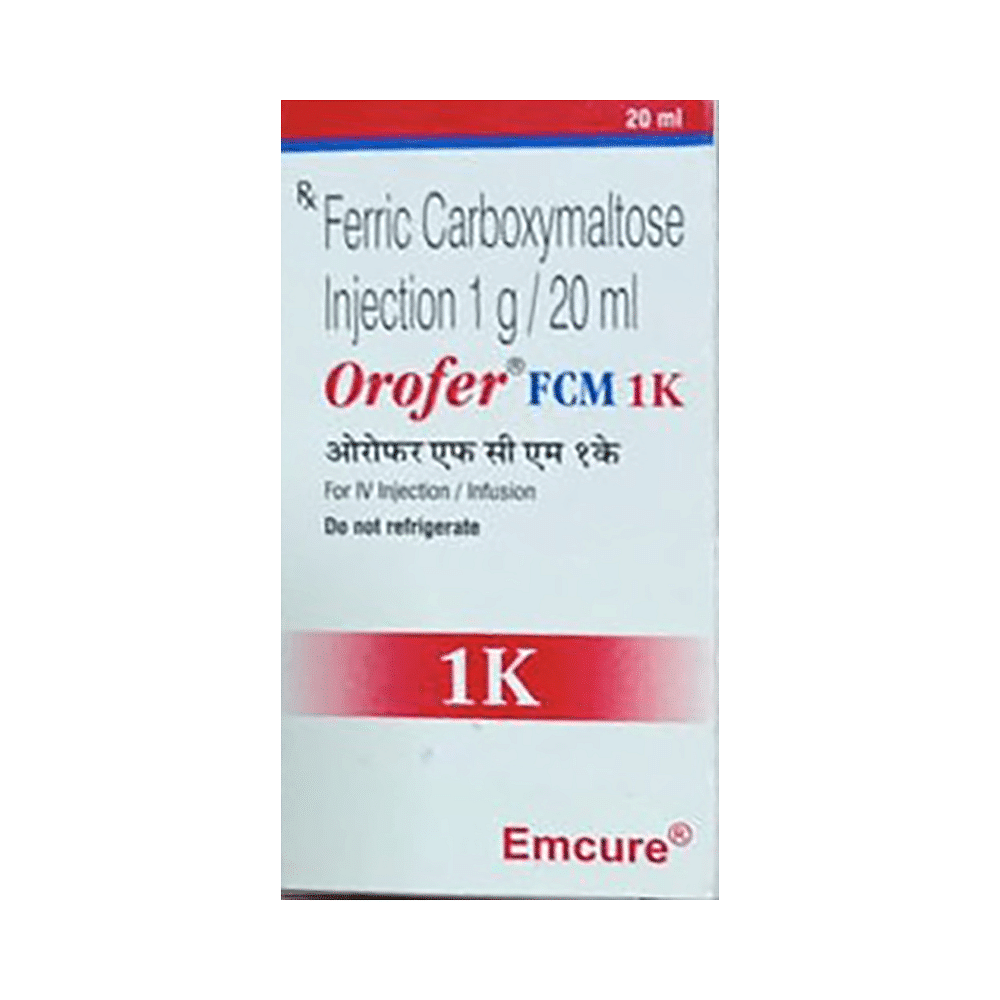
Orofer FCM 1K Injection
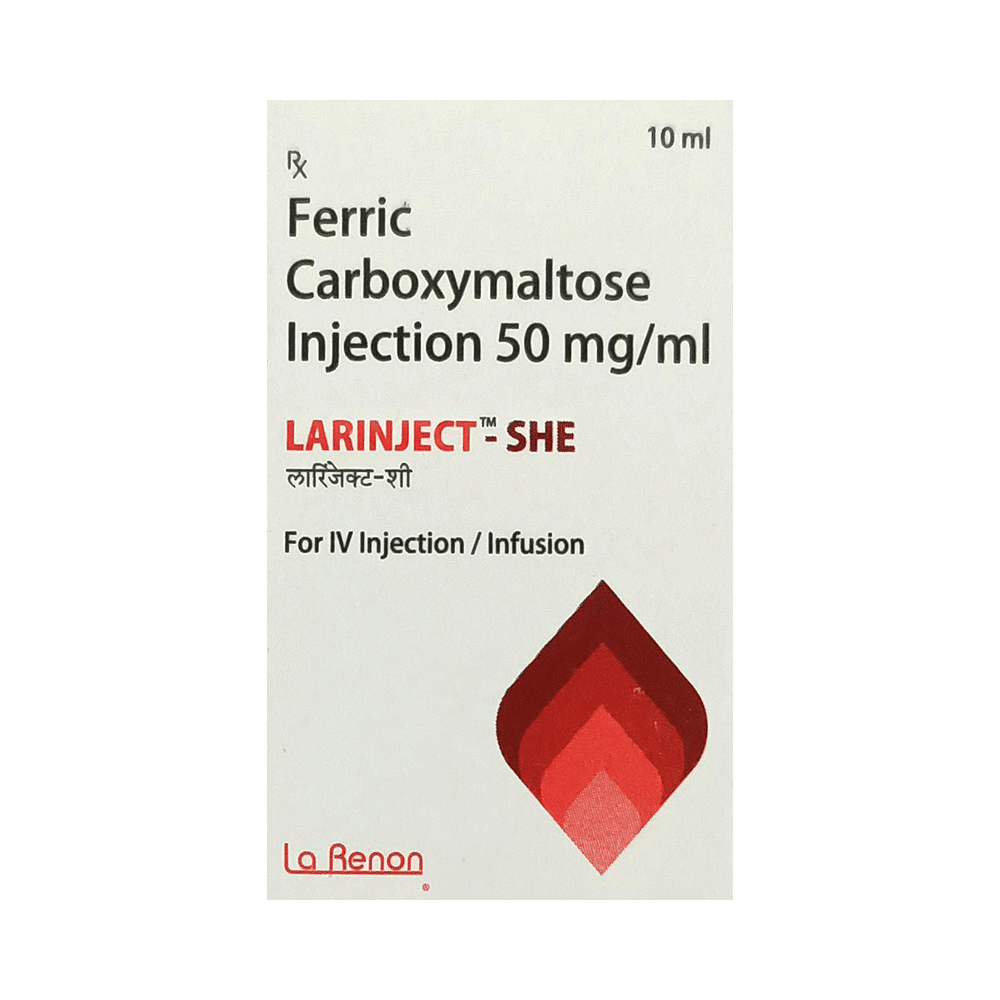
Larinject-She Injection

Foxymalt Injection

Paldela 50mg Injection
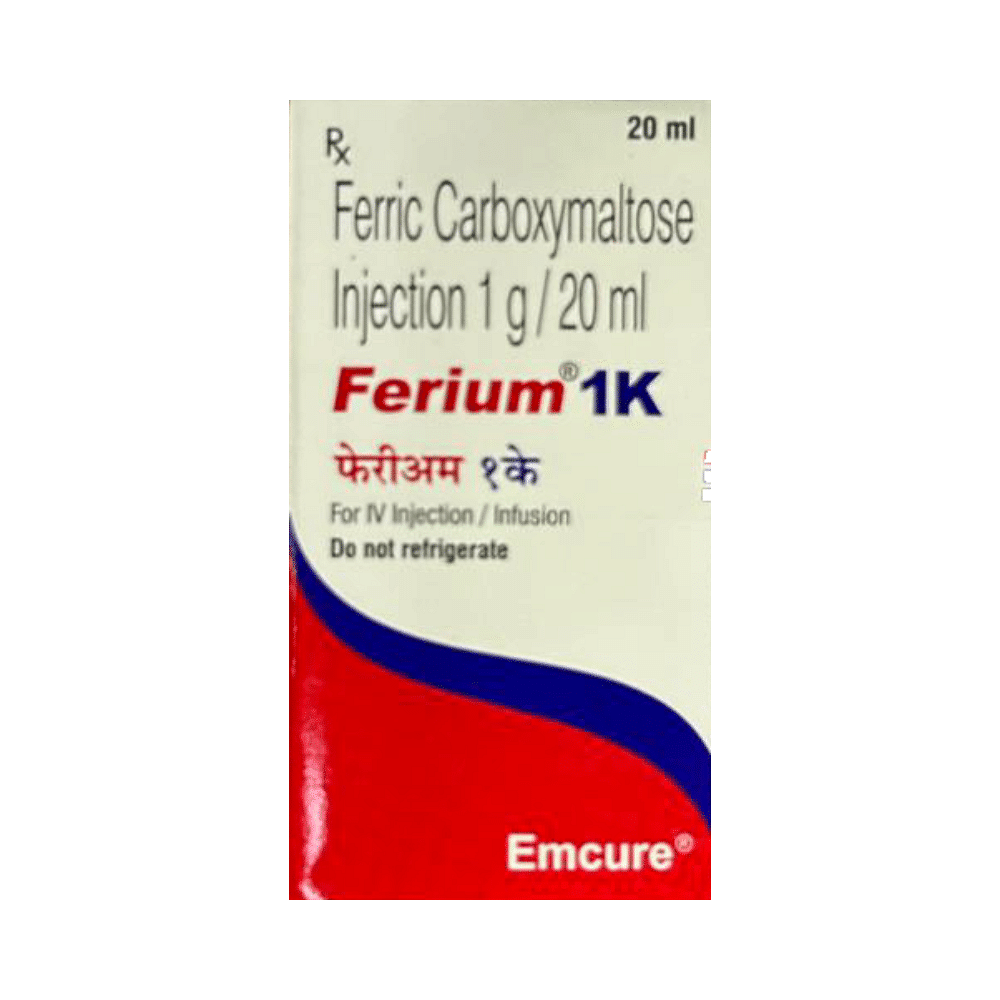
Ferium 1K Injection

Encicarb 50mg Injection
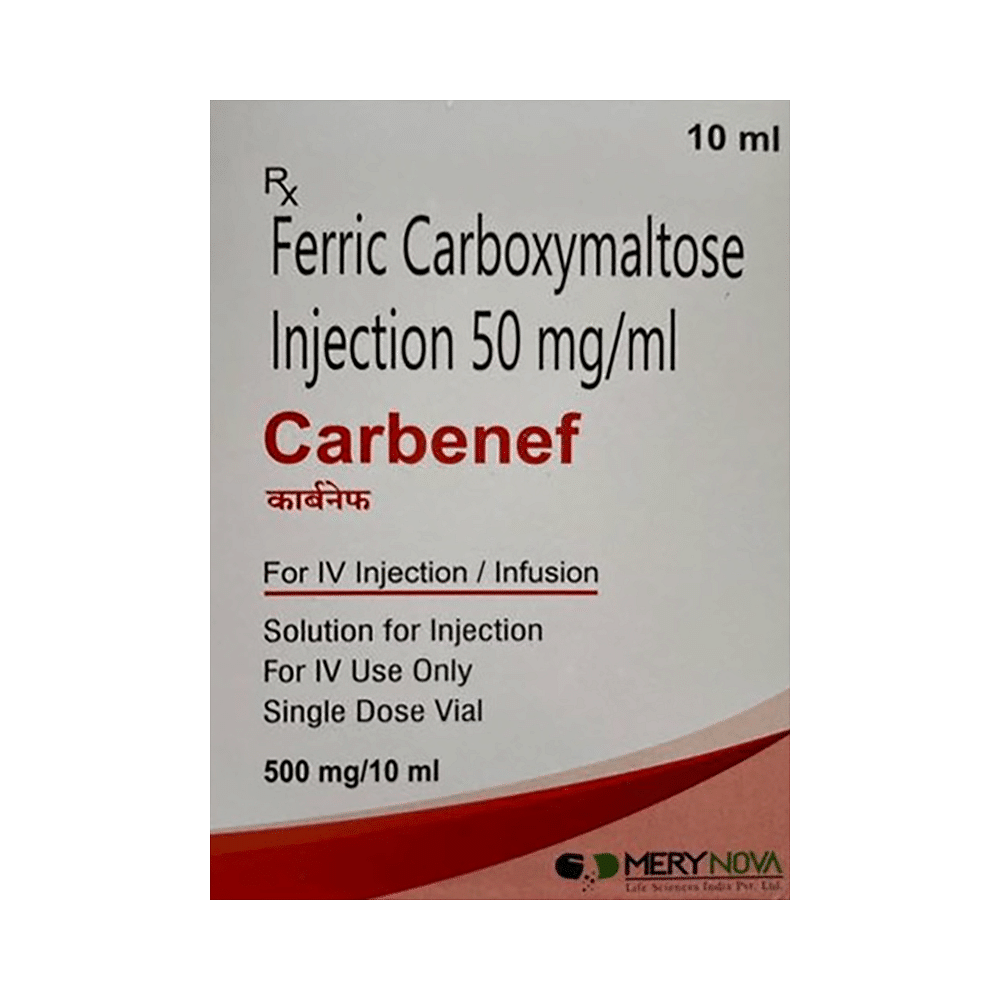
Carbenef Injection
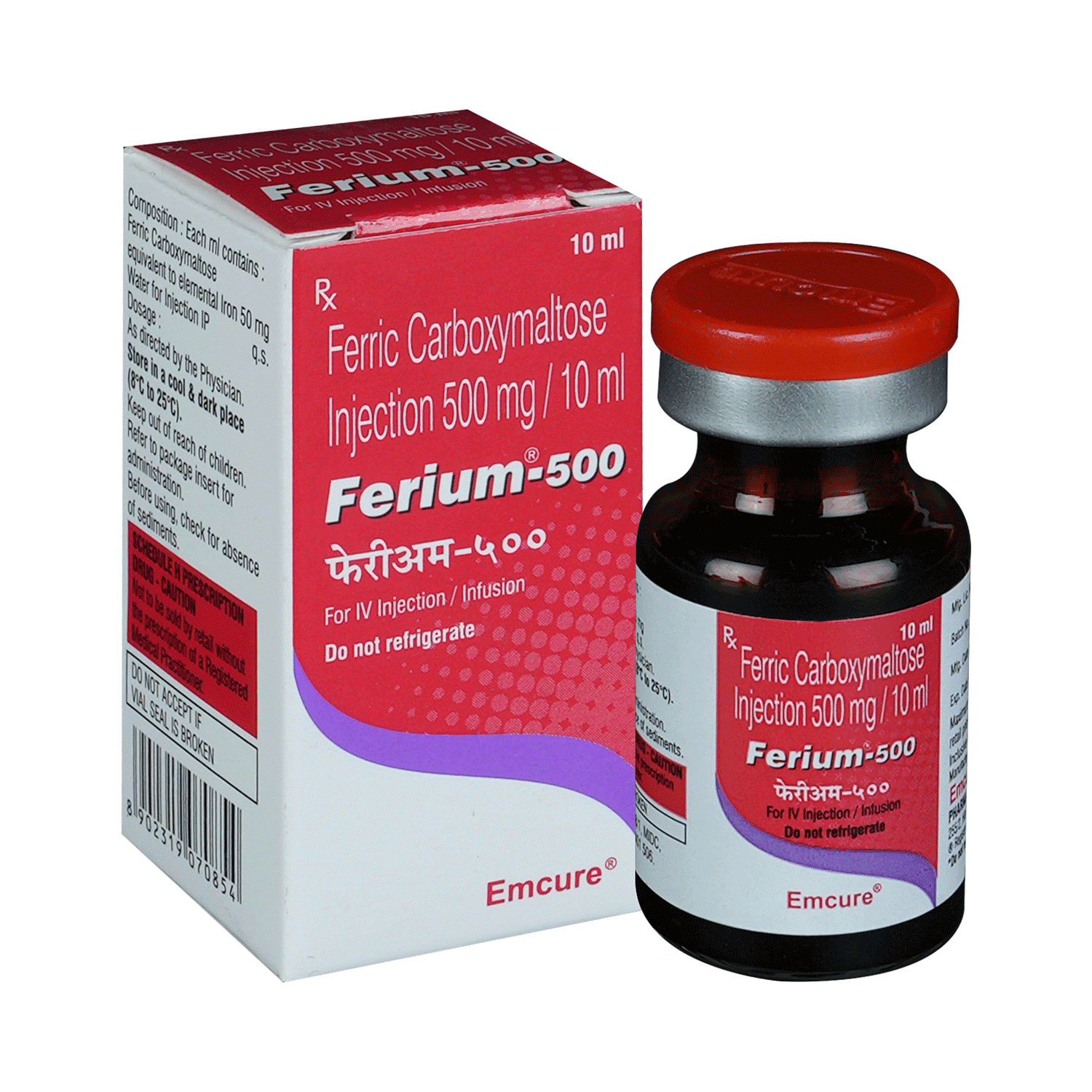
Ferium Injection
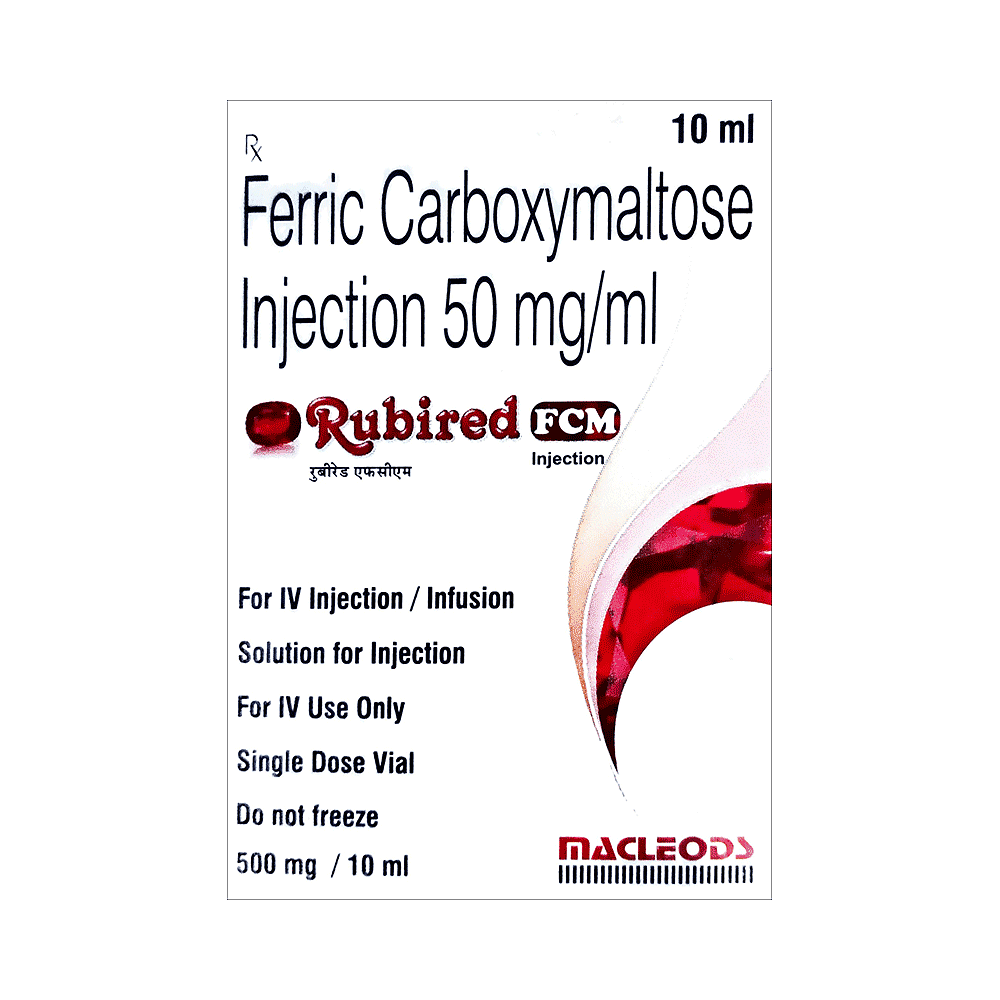
Rubired FCM Injection

Hfciem Injection
Frequently asked questions
What precautions should be taken when administering Carbenef Injection?
Carbenef Injection should be administered by trained personnel who can manage serious allergic reactions (anaphylactic reaction). It may be administered as an undiluted injection directly into a vein or via a dialyzer if the patient is on dialysis. Dilution with sodium chloride followed by direct intravenous administration is also an option. Post-injection monitoring for at least 30 minutes is mandatory. Additionally, avoid subcutaneous (under the skin) or intramuscular (muscle) routes of administration.
How should Carbenef Injection vials be stored before use?
Carbenef Injection vials should be stored at 20°C to 25°C (68°F to 77°F). These vials should not be frozen. The temperature should not fluctuate by more than 15°C to 30°C (59°F to 86°F).
How often can Carbenef Injection be re-injected?
Usually, two doses of this medicine are administered 7 days apart. Hemoglobin assessment occurs at least 4 weeks after the final injection to allow RBC formation time. If hemoglobin remains deficient despite the initial dose, subsequent administration may be considered based on individual needs.
Can Carbenef Injection cause an increase in blood pressure?
Yes, Carbenef Injection may temporarily increase blood pressure accompanied by facial flushing, dizziness, and nausea. These symptoms usually occur immediately after taking the medication and generally subside within 30 minutes.
What should be done if there is leakage of Carbenef Injection?
Incorrect administration of Carbenef Injection may cause leakage at the administration site. Administration should be stopped immediately upon leakage detection. Leakage can cause skin irritation and long-lasting brown discoloration of skin at the injection site.
Is Carbenef Injection safe in pregnancy?
There is limited information on the use of Carbenef Injection during pregnancy. It's crucial to inform your healthcare provider if you are pregnant or planning to conceive a child. Consult with your doctor regarding continuing treatment or discontinuation, as necessary.


